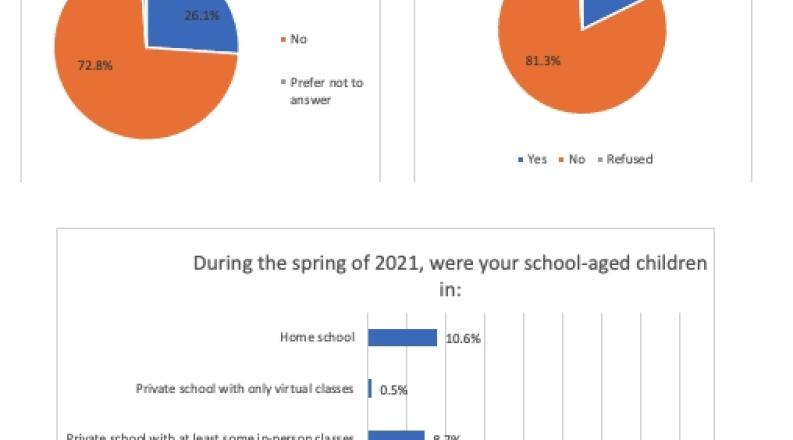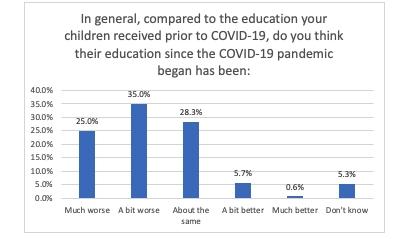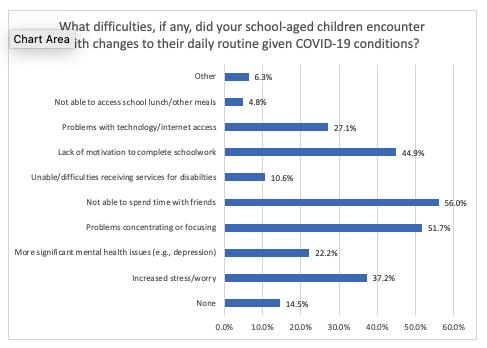Introduction
The Social Science Research Center (SSRC) at Old Dominion University recently completed data collection for the 12th annual Life in Hampton Roads (LIHR) survey. The purpose of the survey is to gain insight into residents' perceptions of the quality of life in Hampton Roads and the COVID-19 pandemic, as well as other topics of local interest such as perceptions of police, employment and other issues. A total of 796 online and telephone surveys were completed between July 12 and Oct. 3, 2021. It is important to note that the methodology this year differs from previous Life in Hampton Roads surveys. For several reasons, including continued concerns about COVID-19 and labor shortages, we conducted both telephone surveys and online panels. This change limits to some degree the ability to compare this year's results with those from previous years or to confidently generalize the results to the Hampton Roads population as a whole. Nonetheless, we note that an increasing number of surveys have moved online in recent years, and that in many instances useful data has been developed despite the challenges of online survey research. For more detailed information on the methodological changes and potential impacts please see the Methodology section in the full report, or please contact the SSRC directly.
Education & Public Schools
About one in four (26.1%) of respondents reported having a school-aged child/children, and 17.7% of those parents indicated they had a school-aged child with a disability. Those with school-aged children were asked where/how their children attended school in the spring of 2021 given COVID-19 conditions. Similar percentages of parents reported that their child attended public school with only virtual classes (44.4%) or attended public school with at least some in- person classes (44%). Another 10.6% indicated that their child was home-schooled and 8.7% indicated that their child/children attended private school with at least some in-person classes.
Those respondents were asked to compare the quality of education their children received since the pandemic began to prior to COVID-19. The majority (60%) indicated that the education their child received was either much worse (25%) or a bit worse (35%) than the education received prior to the pandemic. Only 6.3% of parents felt that the education their child received was a bit or much better and 28.3% felt that the education was about the same. This continues the pattern seen in 2020 when 55.9% of respondents thought that their child's education was a bit
worse or much worse. The increase occurred mostly among those responding that their child's education was much worse (19% to 25%).
Parents were asked about difficulties their child/children had experienced due to changes in their daily routines because of COVID-19 conditions. About 14.5% of parents reported no difficulties. More than half indicated that their child was not able to spend time with friends (56%) or had problems concentrating or focusing (51.7%). Other common reported difficulties included lack of motivation to complete schoolwork (44.9%), increased stress/worry (37.2%) and problems with technology/internet access (27.1%). Fewer parents reported that their child was unable to receive services for disabilities (10.6%) or not being able to access school lunches or other meals (4.8%). However, if we look just at the responses of the smaller subset of parents who indicated that their child had a disability, 40.9% reported problems with receiving services for disabilities
Overall, the results in this section highlight the significant burdens the disruptions associated with the COVID-19 pandemic have placed on children and their educational progress.
Tancy Vandecar-Burdin, PhD
Director
The Social Science Research Center Old Dominion University
757-683-3802 (office)
Related News Stories
Life in Hampton Roads Survey: Quality of Life
Almost two-thirds of respondents to the 2021 survey rated the quality of life in the region as excellent or good, which is down slightly from non-COVID years. (More)
Five ODU Online Programs Recognized Among the Nation’s Best in U.S. News & World Report’s 2022 Rankings
The University, which has been a leader in distance learning for 35 years, had a total of 12 programs earn national rankings from the publication. (More)
Despite Labor Market, Inflation Worries, ODU Economic Forecast Predicts a Solid 2022 Economy
However, higher prices, supply chain issues and workforce shortages remain challenges. (More)








